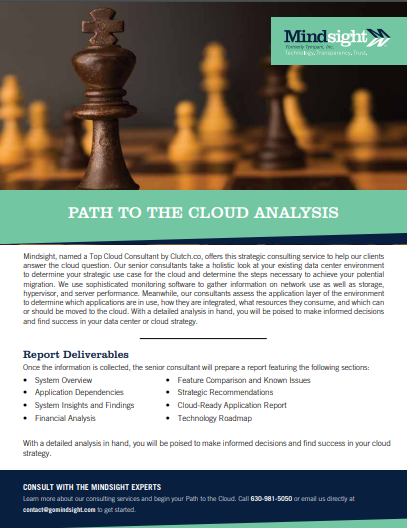December 14, 2015
In January 2013, CNN Money penned a brief article in response to the Office 365 announcement with the provocative title, “Microsoft wants you to pay $100 a year for Office.” The article gave a high level overview of Office 365, then in its fledgling state, and focused on the monthly subscription fee aspect of the service. It attempted to test the waters of public opinion on the billing model and then highlight the changing software market landscape.
Yes, personal users and families may find a subscription-fee consumption model unattractive at first, but in a business environment, it is far more appealing. Almost three years later, Office 365 is applicable and desirable to a wide range of clients. From small businesses with only a handful of devices in the office to some of the largest enterprise organizations on Earth, the “software as a service” (SaaS) model use cases for email and standard office programs seem unlimited.
Cloud-Based Software as a Service
Office 365 combines the standard Microsoft Office suite of programs with other collaboration technologies and migrates them to the cloud. Companies pay a monthly (or annual) subscription fee to access and use these applications remotely. Because it is cloud-based, users can receive a consistent experience and access to their saved data from any location without connection to the corporate network or VPN.
At a high level, Office 365 is composed of:
- Exchange Online: Exchange Online gives access to emails, calendar, contacts, meetings, tasks, and other features commonly found in Microsoft Outlook.
- SharePoint Online: This allows for the easy sharing and management of documents much like network storage, but because it is accessed from the cloud, the user only needs connection to the internet for access.
- OneDrive for Business: Each user gains 1 TB of cloud storage to save all their files in the cloud.
- Skype for Business Online: Connect to colleagues wherever they may be using video conferencing and chat.
- Office Online: Registered users can write and edit documents using the latest version of the Microsoft Office suite of software, including Word, Excel, PowerPoint, and OneNote.
- Lync Online: More than just a chat software, Lync enables workers to form ad-hoc meetings and screen-share to quickly communicate and reach solutions.
Office 365 for the SMB Market
At the enterprise level, the benefits of Office 365 are readily apparent. Multiple branch offices around the globe can collaborate with telepresence meetings through the “Skype for Business” component, mobile workers can access their office programs wherever they may be, and Sharepoint enables immediate filesharing regardless of location.
Great. These benefits are immensely valuable when colleagues are often — or even occasionally — separated by thousands of miles. When distance is not a factor, however, Office 365 still brings something to the table. In the small to medium-sized business (SMB) market, Office 365 even has a number of benefits to offer a company of only a few dozen employees who rarely need to leave a central office setting.
At Mindsight, we define the SMB market as any company at or under 250 employees. That encompasses a wide range of businesses and industries, but through multiple avenues, Office 365 puts many SMB organizations in a position to save a significant amount of money.
- Less Hardware: With Office 365, the IT department is no longer required to purchase, implement, manage, or support servers for email exchange and office applications. Instead, these systems are hosted and managed within the cloud.
- Fewer Administrative Costs: Because the servers are now cloud-based, there is less of a need for administration from the in-house team. Plus, Office 365 automatically updates to the latest version, so IT engineers no longer need to apply patches or cross-company software upgrades every few years.
- Disaster Recovery: All email data and office applications are protected and readily accessible if a calamity befalls the headquarters and damages systems.
- Security: Microsoft’s cloud data centers are built to be as secure as possible. As evidence of the confidence in their security, companies as large as GameStop and Aston Martin employ Office 365 and trust Microsoft with their data security.
- Operational Expense: Positioning email exchange, office software, and collaboration technology as an operational expense eases budgetary concerns by replacing an unforeseen capital expense with a predictable cost.
- Scalability: One of the largest challenges for SMB businesses is scalability. In the roadmap to an enterprise establishment, any solution deployed today must be viable as the company grows. Microsoft Office 365, as a cloud-based solution, can be expanded and contracted as needed. Licenses are purchased on a by-user basis and can be applied to multiple devices per user.
Like what you read?
About Mindsight
Mindsight, a Chicago IT consultancy and services provider, is an extension of your team. Our culture is built on transparency and trust, and our team is made up of extraordinary people – the kinds of people you would hire. We’ve always prided ourselves in delivering the full spectrum of IT services and solutions, from design and implementation to support and management. Our highly-certified engineers and process-oriented excellence have certainly been key to our success. But what really sets us apart is our straightforward and honest approach to every conversation, whether it is for a local business or global enterprise. Our customers rely on our thought leadership, responsiveness, and dedication to solving their toughest technology challenges.

